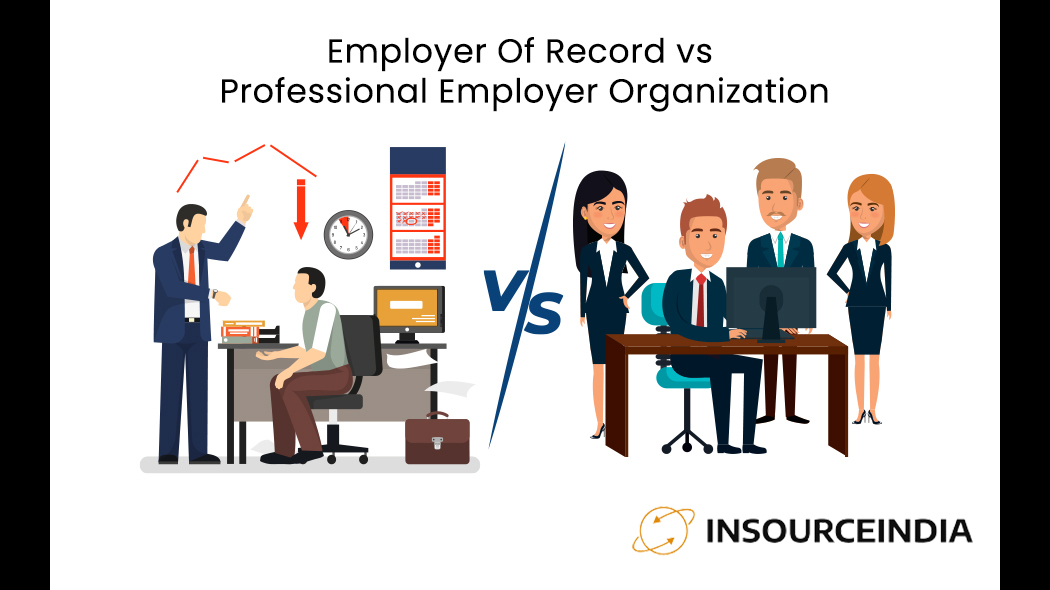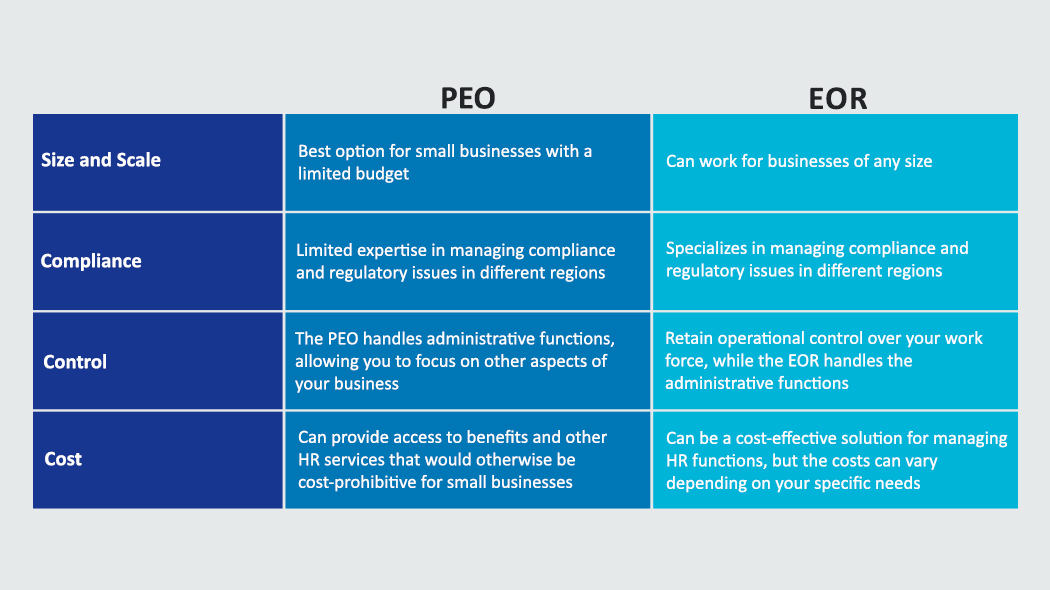Employer of Record (EOR)
An Employer of Record (EOR) is a third-party service provider that assumes responsibility for all aspects of employer compliance and workforce management. When you engage an EOR, they become the legal employer of your employees, taking on tasks like payroll processing, benefits administration, tax filing, and other HR functions. You, as the business owner, retain control over the day-to-day operations of your employees, but the EOR is responsible for ensuring that all HR functions are managed compliantly and efficiently.
EORs are a popular solution for companies that are expanding into new markets or hiring remote workers. They provide a level of compliance and regulatory expertise that can be difficult for companies to manage on their own, especially in unfamiliar legal and cultural environments.
Professional Employer Organization (PEO)
A Professional Employer Organization (PEO) is similar to an EOR, but with a few key differences. A PEO is also a third-party service provider that assumes responsibility for HR functions like payroll, benefits, tax filing, and compliance. However, a PEO goes a step further by also co-employing your employees. This means that your employees become part of a larger workforce, giving the PEO the ability to negotiate better rates on benefits and insurance, among other things.
PEOs are often used by small to mid-sized businesses that want to offer competitive benefits to their employees but may not have the resources or scale to do so on their own. PEOs can also be a good option for companies that are looking to outsource HR functions and focus more on their core business operations.
Which is Best for Your Business?
So, which option is best for your business?
The answer depends on a number of factors, including your business goals, budget, and HR needs. Here are some key considerations to help you make your decision:
- Size and Scale: If you’re a small business with a limited budget, a PEO may be the best option. PEOs can provide access to benefits and other HR services that would otherwise be cost-prohibitive for small businesses.
- Compliance: If you’re expanding into a new market or hiring remote workers, an EOR may be the better choice. EORs have expertise in managing compliance and regulatory issues in different regions, which can save you time and money in the long run.
- Control: If you want to retain full control over your employees, an EOR may be the best option. With an EOR, you retain operational control over your workforce, while the EOR handles the administrative functions.
- Cost: Both EORs and PEOs can be cost-effective solutions for managing HR functions, but the costs can vary depending on your specific needs. Consider your budget and the services you need to determine which option makes the most sense for your business.
In conclusion, both EORs and PEOs can be valuable solutions for managing HR functions, but the best option for your business will depend on your specific needs and goals. Consider the factors we’ve outlined here and work with a reputable provider to determine the best solution for your business. With the right partner, you can streamline your HR functions, reduce costs, and focus on growing your business.


